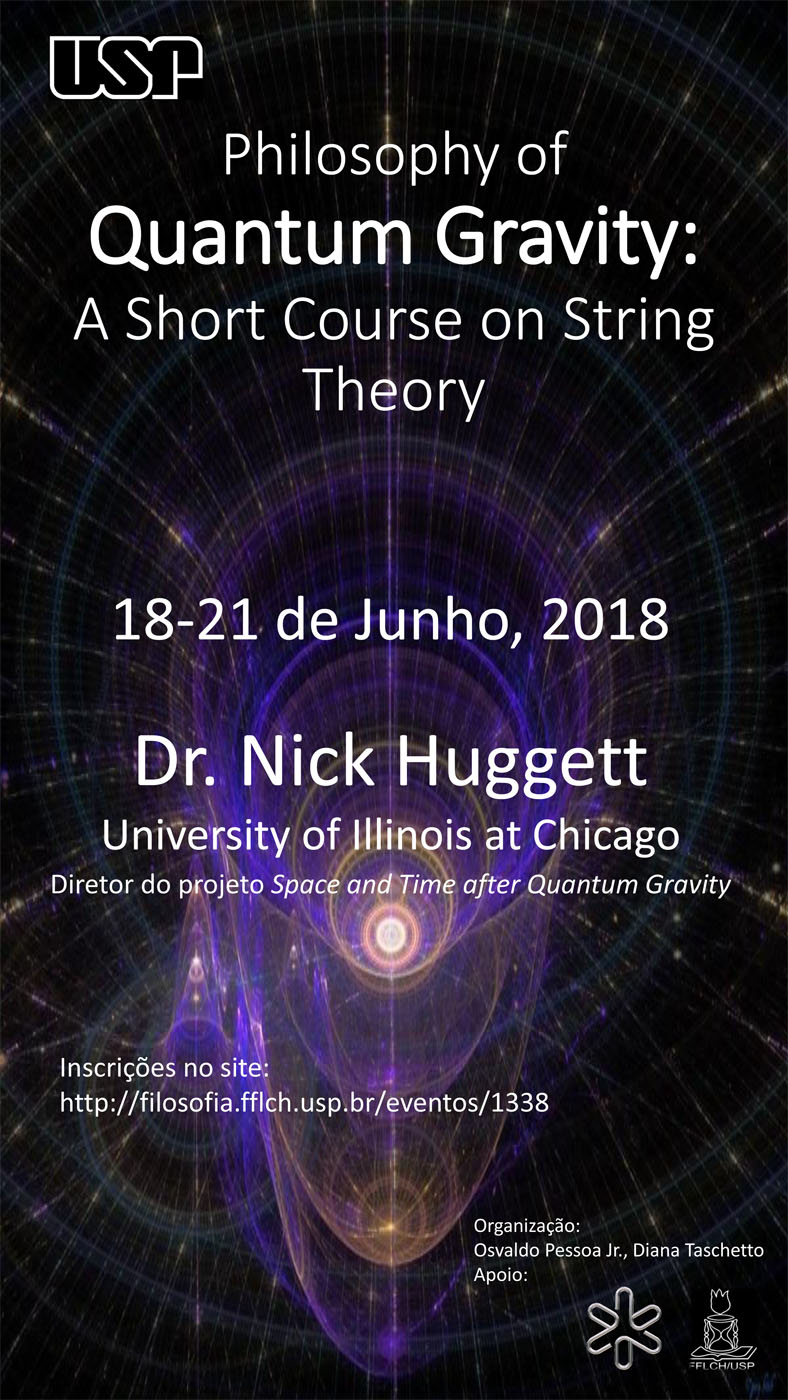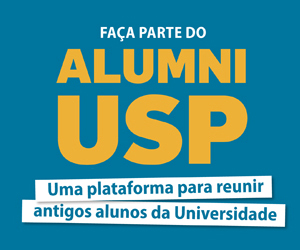Philosophy of Quantum Gravity: Short Course on String Theory
IFUSP, 18 a 21 de junho de 2018
É com enorme satisfação que convidamos a todos para o evento “Philosophy of Quantum Gravity: Short Course on String Theory”, a acontecer de 18 a 21 de junho, no Instituto de Física da USP, que contará com a presença do filósofo da física Nick Huggett.
Interessados podem inscrever-se no seguinte link:
Inscritos têm a opção de receber certificado de participação. A programação do evento será a seguinte:
18 de junho – Opening Lectures
17h, Auditório Adma Jafet: “Explaining Space”, Dr. Nick Huggett, UIC
Abstract. Could space be an ‘emergent’ object, somehow ‘made of’ more fundamental non-spatial structures? (Elements of an abstract algebra perhaps.) Certain proposed theories of quantum gravity suggest that such might be the case, but how could that be since our notions of physical explanation are deeply spatial? For instance, it makes no sense to explain space in terms of smaller non-spatial structures, since calling something ‘smaller’ assumes that it is spatial. This talk will illustrate the situation, and propose that valid physical explanation is theory-dependent, changing over time; so that a successful theory of quantum gravity may have to make clear a new understanding of what a physical explanation is — one in which it makes sense to explain how space is ‘made’ of something non-spatial.
19h, Auditório Adma Jafet: “Quantum Gravity, Space and Time: Is Cosmology a Science?”, Dr. Elcio Abdalla, IF-USP
Abstract. Gravity is the theory of Space and Time, and as a consequence a theory of the very structure of the Universe. Inside our Universe, science describes the substrate we live from by means of the Theory of Elementary Particles, which describes Matter in terms of Quantum Mechanics. Based on these ideas, Cosmology is the description of the Cosmos in scientific terms, with a well defined and well grounded theory, based on a firm mathematical background and a plethora of experiments and observations. However, Cosmology in itself does not correspond to a physical theory that can be put to proof by experiences in the same way other physical are: we achieve knowledge by observations not experiences in a laboratory. Moreover, Quantum Mechanics seems almost incompatible with Gravity, and a Theory of Quantum Gravity ultimately has to be discussed as a Metaphysical Theory, thus beyond a proof by standard physics. These ideas are at the basis of deep discussions concerning the physical reality since a century and resist a full interpretation.
19 a 21 de junho: The Place of Space in String Theory
Minicurso ministrado por Nick Huggett
19 de junho, 17h, Auditório Novo I: Basic Formulation of Bosonic String Theory
Abstract. The first class will describe the basic formulation of (bosonic) string theory: the classical string in a background spacetime and its symmetries, quantization of the string and the presence of a graviton mode, and the interpretation of background geometry in terms of gravitons.
20 de junho, 17h, Auditório Novo II: Dualities in String Theory
Abstract. The second class focuses on dualities in string theory. We will focus on T-duality, according to which a closed space of radius R is indistinguishable from a closed space of radius 1/R (in units in which the string length is unity), but we will also mention other (more profound) dualities. If the dual models are physically equivalent, then the space in which strings live has no specific radius: how is this possible given that space as we observer it does have a specific size (very large
compared to the string length)?
21 de junho, 17h, Auditório Novo I: Deriving String Theory from General Relativity
Abstract. The third and final class will discuss the derivation of the Einstein field equations of general relativity in string theory; they must hold (to lowest order) in order to avoid the breakdown of Weyl symmetry. We will consider the significance and scope of this result for the nature of spacetime in string theory. We will also sketch how this result leads to string theoretic cosmological models of black holes and the big bang.
Advertimos que todas as palestras e aulas serão na língua inglesa. Esperamos vocês
lá!
No caso de qualquer dúvida, não hesitem em contatar-nos.
Com saudações cordiais, Diana Taschetto e Osvaldo Pessoa Jr.
Data do Evento:
18/06/2018 - 17:00 até 21/06/2018 - 19:00
Data de Término:
21/06/2018 - 19:00














